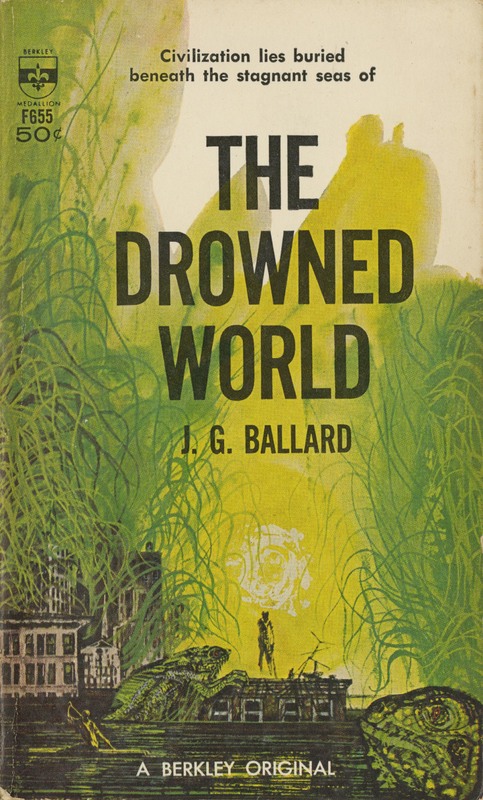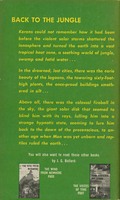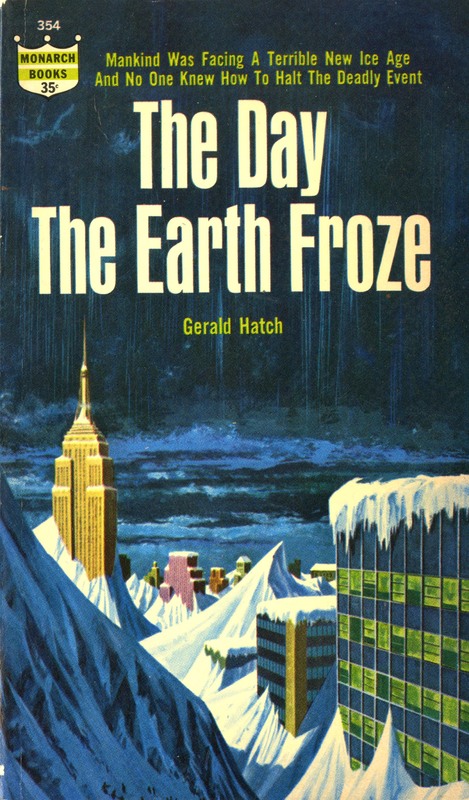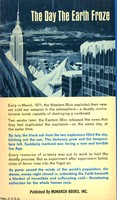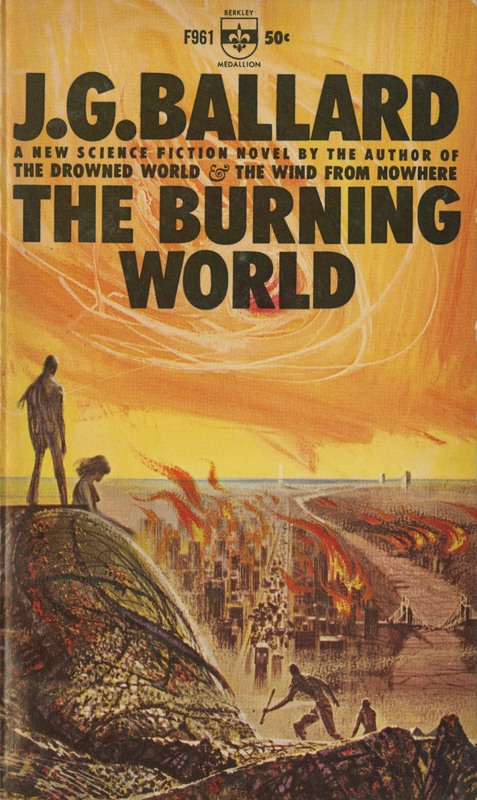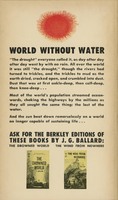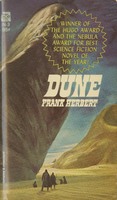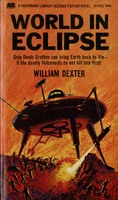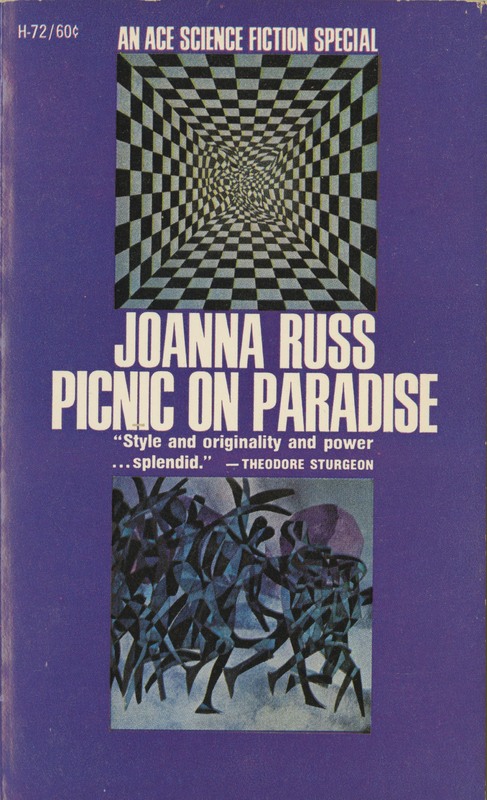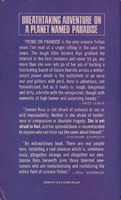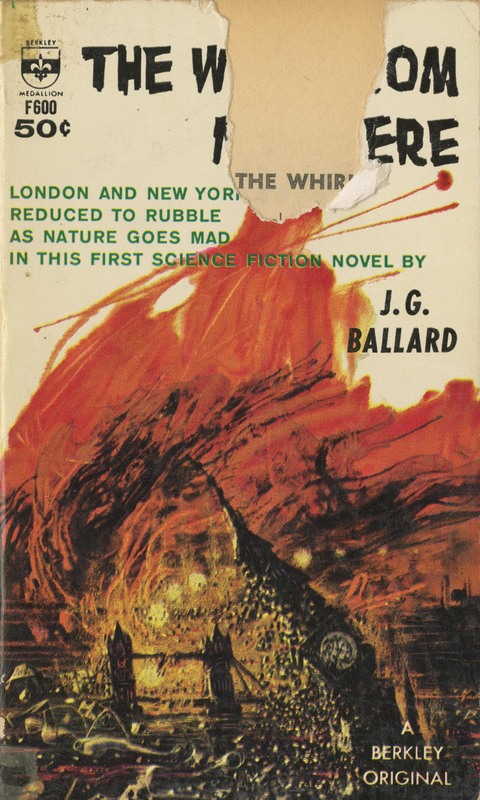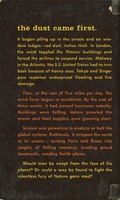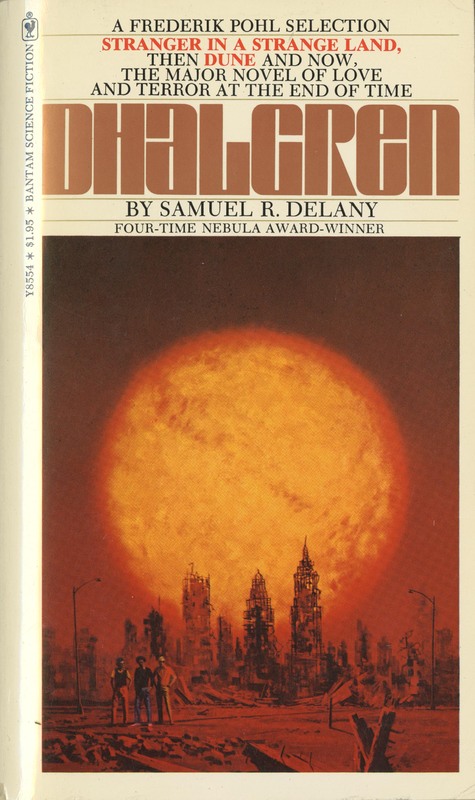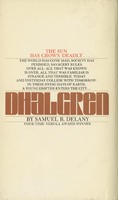Climate Change
The New Wave of science fiction in the 1960s and 70s spurred a new interest among writers to consider the ramifications of climate change initiated by mankind. Often centered on narratives of atomic energy or atomic weapons, these works ask what earth and mankind would look like after catastrophe. Climate fiction, as a genre, only became popularly known as 'cli-fi' in the last few decades, since the ramifications of the Anthropocene became unavoidable in popular discourse.
The "New Wave" era only represents one stage in the growth of science fiction narratives on the relationship between humans and their ecosystems. The effects of technology on the environment pervade all science fiction, but after the early twentieth-century "Golden Age" fantasies of climate events as monstrous and beyond the control of humans, works by J.G. Ballard and lesser known authors during the "New Wave" era showcased the rising concern with humanity's responsibility for climate change. Works like Frank Herbert's Dune (1965) and Joanna Russ' Picnic in Paradise (1968), on the other hand, explore alternate worlds where Earthly tensions between environmental exploitation and social harmony can be explored through a fantastical prism.
- Title
- Creator
- Date
- Subject
- Description
- Publisher
- Language
-
The Day They H-bombed Los Angeles
-
Robert Moore Williams
-
1961
-
Survival > Survival / Fiction.
Nuclear warfare > Nuclear warfare / Fiction.
Los Angeles (Calif.) > Los Angeles (Calif.) / Fiction.
-
A Hollywood star, a housewife, a nurse... A doctor, a G-man, an engineer... They were among the pitiful handful of survivors who faced starvation, disease, and something infinitely worse - the terror that roamed the ruins! The horde of monsters had once been men and women, but now were transformed into something never before seen on Earth!
-
Ace Books
-
English
Item sets
- Title
- Creator
- Date
- Subject
- Description
- Publisher
- Relation
- Language
-
The Drowned World
-
J. G. Ballard
-
1962
-
Dystopias > Dystopias /Fiction.
Global warming > Global warming /Psychological aspects > Global warming / Psychological aspects /Fiction.
Global warming > Global warming /Fiction.
-
Kerans could not remember how it had been before the violent solar storms shattered the ionosphere and turned the earth into a vast tropical heat zone, a seething world of jungle, swamp and fetid water...In the drowned, lost cities, there was the eerie beauty of the lagoons, the towering sixty-foot-high plants, the once-proud buildings smothered in silt...Above all, there was the colossal fireball in the sky, the giant solar disk that seemed to blind him with its rays, lulling him into a strange hypnotic state, seeming to lure him back to the dawn of the preconscious, to another age when Man was yet unborn and reptiles ruled the earth...
-
Berkley Publishing Corporation
-
SciFi Corpus
-
English
Item sets
- Title
- Creator
- Date
- Subject
- Description
- Publisher
- Relation
- Language
-
The Day The Earth Froze: A Science Fiction Novel
-
Gerald Hatch
-
1963
-
Climate change.
-
Early in March, 1971, the Western Block exploded their newest Cold War weapon in the atmosphere-a deadly contraterrene bomb capable of destroying a continent. Two weeks later, the Eastern Bloc realized the news that they had duplicated the explosion-on the same day, at the same time. By July, the black ash from the two explosions filled the sky, blotting out the sun. The darkness grew and the temperature fell. Suddenly mankind was facing a new and terrible Ice Age.
Every resource of science was put to work to halt the deadly process. But as experiment after experiment failed, cries of terror rose into the frigid air. As panic seized the minds of the world's population, the dense, snowy night closed in, entombing the Earth beneath a blanket of incredible and suffocating cold-threatening extinction for the whole human race.
-
Monarch Books
-
SciFi Corpus
-
English
Item sets
- Title
- Creator
- Date
- Subject
- Description
- Publisher
- Relation
- Language
-
The Burning World
-
J.G. Ballard
-
1964
-
Pollution > Pollution /Fiction.
Droughts > Droughts /Fiction.
-
Industrial waste released into the ocean has caused a drought by preventing evaporation and destroying the precipitation cycle. Later released in Great Britain as The drought.
-
Berkley Publishing Corporation
-
SciFi Corpus
-
English
Item sets
- Title
- Creator
- Date
- Subject
- Description
- Publisher
- Relation
- Language
-
Dune
-
Frank Herbert
-
1965
-
Life on other planets.
Interplanetary voyages.
Dune (Imaginary place).
-
Set in the distant future amidst a feudal interstellar society in which various noble houses control planetary fiefs, Dune tells the story of young Paul Atreides, whose family accepts the stewardship of the planet Arrakis. While the planet is an inhospitable and sparsely populated desert wasteland, it is the only source of melange, or "the spice", a drug that extends life and enhances mental abilities. As melange can only be produced on Arrakis, control of the planet is a coveted and dangerous undertaking. The story explores the multi-layered interactions of politics, religion, ecology, technology, and human emotion, as the factions of the empire confront each other in a struggle for the control of Arrakis and its spice.
-
Ace Books
-
SciFi Corpus
-
English
Item sets
- Title
- Creator
- Date
- Subject
- Description
- Publisher
- Language
-
World in Eclipse
-
William Dexter
-
1966
-
Survival > Survival / Fiction.
-
Denis Grafton, along with a handful of others, are all that remain of the human race. They alone survive when an untested thorium bomb explosion becomes a cosmic catastrophe.The group reaches the planet Vulcan and are suddenly taken captive. But just as suddenly they are returned to Earth. All life has been obliterated. Desperately they begin to rebuild civilization on Earth. Denis and his friends must struggle for every minute of their existence. But they are stalked and menaced by a cruel, unfathomable enemy capable of destroying Earth again in one terrifying second!
-
Paperback Library
-
English
Item sets
- Title
- Creator
- Date
- Subject
- Description
- Publisher
- Relation
- Language
-
Picnic on Paradise
-
Joanna Russ
-
1968
-
Life on other planets.
-
Suspended in the jade depths of an ancient Earth sea. Chrono-hurled to a steep winter planet swept by an eerie future war. Middle-aged (at 26), tiger-tough (at 4'9"), walking a wild Universe on Time-long legs. This is the story of a woman named Alyx.
-
Ace book
-
SciFi Corpus
-
English
Item sets
- Title
- Creator
- Date
- Subject
- Description
- Publisher
- Relation
- Source
- Language
-
The Wind From Nowhere
-
J.G. Bullard
-
1962
-
Cyclones > Cyclones / Fiction.
-
The wind came from nowhere...a super hurricane that blasted round the globe at hundreds of miles per hour burying whole communities beneath piles of rubble, destroying all organized life and driving those it did not kill to seek safety in tunnels and sewers-where they turned against each other in their desperate struggle to survive.
-
Berkley Publishing Group
-
SciFi Corpus
-
https://catalog.hathitrust.org/Record/102699465
-
English
Item sets
- Title
- Creator
- Date
- Subject
- Description
- Publisher
- Relation
- Source
-
Dhalgren
-
Delany, Samuel R.
-
1975
-
Science Fiction, City and town life
-
The sun has grown deadly, the world had gone mad, society has perished, savagery rules over all. All that was known is over. All that was familiar is strange and terrible. Today and yesterday collide with tomorrow. In these dying days of earth, a young drifter enters the city.
-
Bantam Books
-
SciFi Corpus
-
https://catalog.hathitrust.org/Record/006834072



